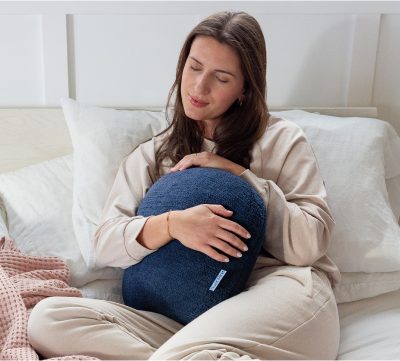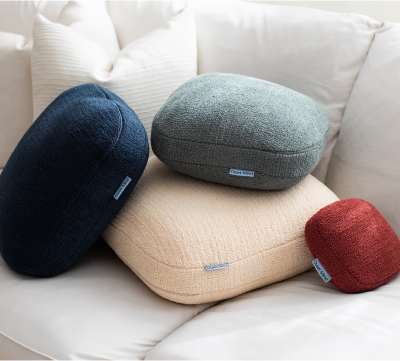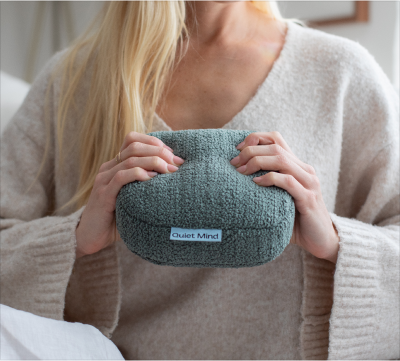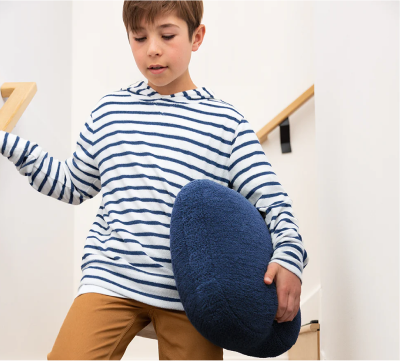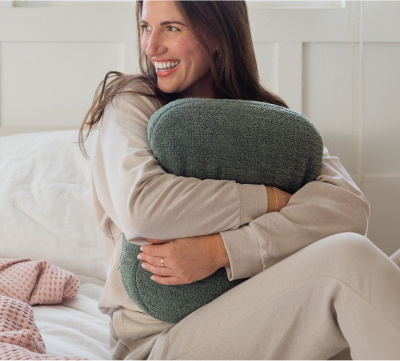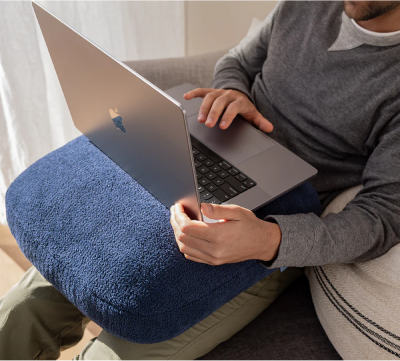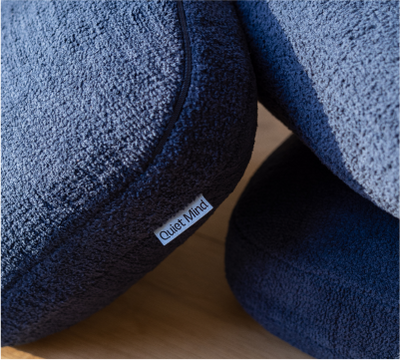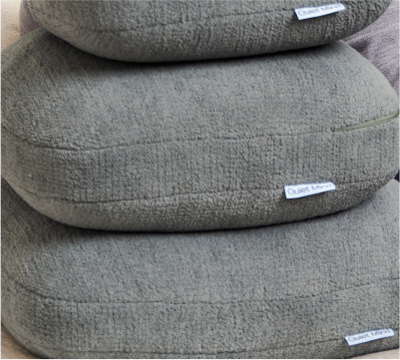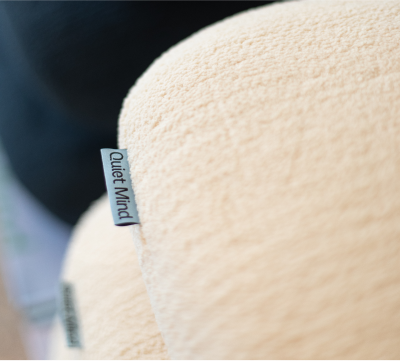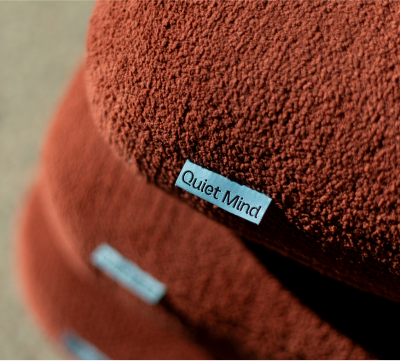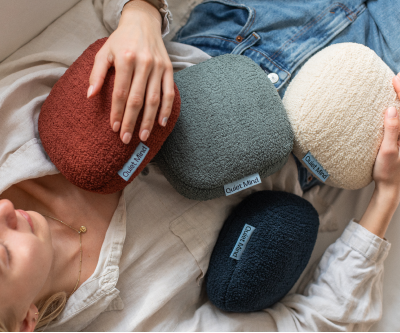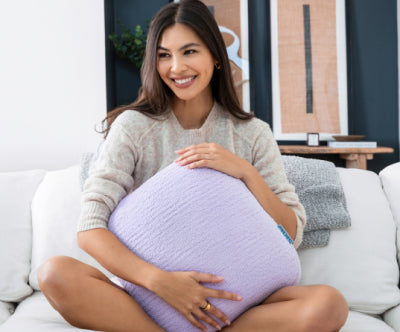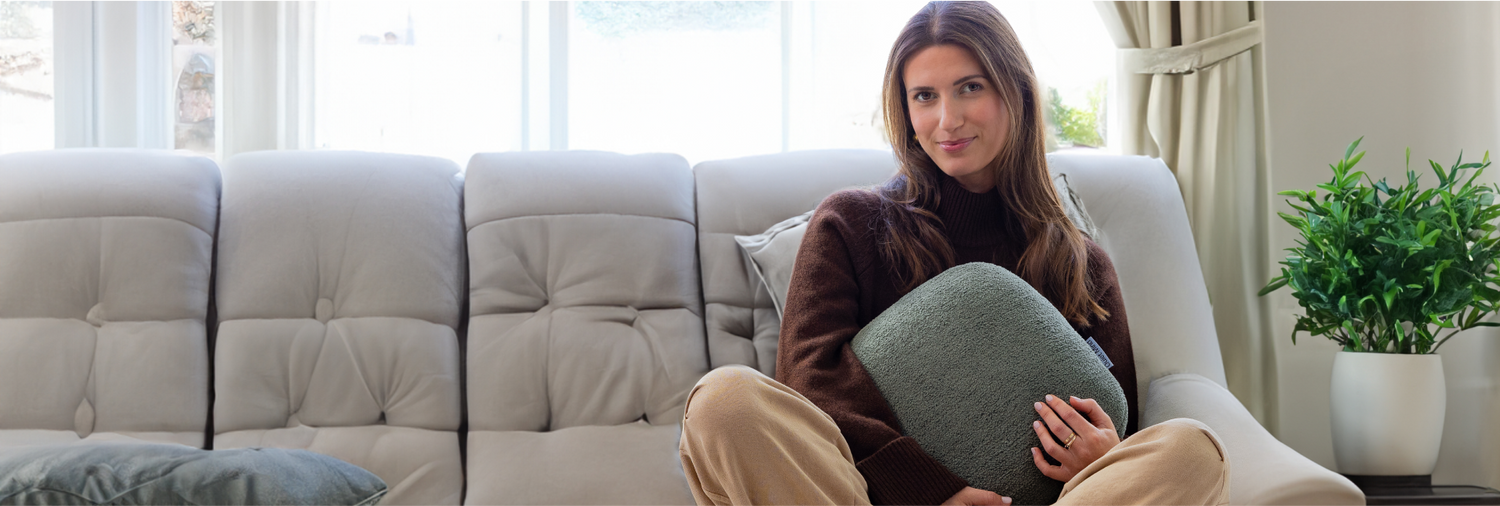For many, using medication to treat mental illness is a last resort, and with good reason. Antidepressants can come with a host of unpleasant side effects, ranging from weight gain to emotional numbness.
Thankfully, there are many promising alternatives for treating mental illness without medication. Approaches like deep-touch pressure therapy, talk therapy, and self-care offer scientifically-backed ways to manage the symptoms of mental illnesses naturally.
Mental illness is complex, and what works for one person may not work for another. However, exploring the science behind treating mental illness without medication is the first step to figuring out what might work for you.
Below, we’ll delve into some promising holistic approaches and natural remedies that can complement or potentially replace pharmaceutical treatments.

How to Treat Mental Illness Without Medication
Mental illness can stem from a variety of causes linked to various risk factors like stress, trauma, unhealthy habits, or even genetics and brain chemistry. These risk factors can influence the severity of your symptoms and which treatment options will work for you.
If you want to learn how to treat mental illness without medication, here are several options to explore with the help of your healthcare professional.
-
Cognitive Behavioral Therapy (CBT)
Cognitive behavioral therapy can be just as effective as medication for treating certain mental health issues, including those related to anxiety and depression. Often used as the primary treatment option, CBT can also be incorporated into a holistic plan for mental health care that includes natural remedies and other alternative therapies.
CBT can help you identify and create management strategies for unhealthy thoughts and negative emotions. It teaches you practical skills to challenge and change unhelpful thinking patterns, improve your emotional regulation, and develop personalized coping strategies.
From in-person therapy to teletherapy and even app-based versions, there are many different ways to access CBT. In-person options are best if you prefer face-to-face interaction, while teletherapy takes place in the comfort of home. App-based options are ideal for those who prefer minimal interaction and a flexible pace.
-
Deep-Touch Pressure Therapy
Deep-touch pressure therapy is an effective alternative for relieving mental health issues without medication. The technique involves applying firm, gentle pressure to the body, which can have a calming and soothing effect on the nervous system . It’s often used to manage symptoms related to anxiety, stress, sleep disorders, and sensory processing issues.
DPT works by stimulating the parasympathetic nervous system, promoting relaxation, and reducing the body’s stress response. This type of therapy can lower the heart rate, decrease cortisol levels, and trigger the release of serotonin and dopamine, neurotransmitters that enhance mood and well-being.
Weighted pillows, like the Original Weighted Pillow by Quiet Mind , provide the benefits of DTP at home, at work, or on the go. They can be hugged, squeezed, or placed in your lap to relieve anxiety , promote relaxation, improve focus, and improve sleep quality.
-
Relaxation and Mindfulness Practices
Relaxation and mindfulness practices work by counteracting the body’s stress response, also known as the fight or flight response. These practices help reduce stress and promote a sense of calm and well-being, which is essential for promoting good mental health.
Relaxation techniques can help you feel calm in stressful situations by lowering brain activity, blood pressure, heart rate, and respiration. These techniques include progressive muscle relaxation , diaphragmatic breathing, and yoga.
On the other hand, mindfulness-based therapies, like meditation and guided imagery, support mental health by keeping your attention on the present moment, allowing you to tune out negative thoughts. They have been successfully used to help people with anxiety, depression, substance abuse issues, and even chronic pain.
-
Lifestyle Modifications
Making some simple changes to your daily habits can have a significant impact on your mental health. Regular exercise is a great place to start because it increases the production of endorphins, which are natural mood lifters. It also promotes better sleep, reduces stress, and improves cognitive function.
A balanced diet that’s rich in key nutrients can also support brain function and emotional well-being. Most experts recommend prioritizing omega-3 fatty acids, complex carbohydrates, and antioxidants while eliminating processed foods and refined sugars to support mental health.
It’s also important to note that poor sleep can exacerbate mental health issues, while good sleep hygiene can enhance mood and cognitive function. Go to bed and wake up at the same time every day to regulate your body’s internal clock and avoid stimulants before bedtime to improve sleep quality.
And finally, the importance of stress management can’t be overstated. In addition to the relaxation techniques listed above, practice good time management by prioritizing what’s most important to reduce overwhelm. And be sure to make time for activities you enjoy to distract from stress and bring joy into your life.
-
Herbal Remedies and Supplements
There are a variety of herbs and supplements suggested for treating mental illness, but you’ll want to be sure to talk to your doctor about their effectiveness, safety, and proper use. One of the most promising is St. John’s Wort, with some studies suggesting that it may be as effective as antidepressant medications.
L-theanine , a substance found in green tea, may also help to improve relaxation and reduce anxiety by boosting the brain’s alpha waves. Omega-3s are also suggested for supporting neurological health, and they have been used to treat psychiatric conditions.
Some other options to explore include valerian, ashwagandha, and ginkgo biloba, which can all offer additional support for managing the symptoms of mental illness. Just be sure to consult with your healthcare provider before starting any new supplement, especially if you have a health condition or take other medications.
-
Acupuncture and Traditional Chinese Medicine (TCM)
Acupuncture and Traditional Chinese Medicine focus on balancing the body’s energy and restoring harmony within the body’s symptoms. They are often used to provide natural and complementary strategies for treating mental illness.
Acupuncture is thought to trigger the release of endorphins, which are the body’s natural painkillers and mood enhancers. It may also influence the autonomic nervous system, reducing stress and promoting relaxation.
TCM often incorporates the use of herbal formulas to restore balance and address underlying issues that may be contributing to poor mental health. Diet also plays a crucial role in TCM for mental health, incorporating foods based on their energetic properties and ability to balance the body’s internal environment.
-
Massage Therapy and Bodywork
Massage therapy and bodywork can be valuable tools for treating mental illness without medication. Techniques like Swedish massage, reflexology, and craniosacral therapy can help reduce stress, alleviate tension, and support emotional health.
These therapies not only promote relaxation but also enhance the body-mind connection, leading to improved mental clarity and emotional stability. Regular sessions can help balance the nervous system, reduce anxiety and depression, and improve overall well-being.
-
Art and Creative Therapies
Expressing your feelings through art and creative expression can help you cope with your symptoms. Art therapy, music therapy, and drama therapy are just a few types of creative therapies available, and they’re a great choice for those who find it difficult to talk about how they’re feeling.
Under the guidance of a trained therapist, participants engage in creative activities that help them gain insight, process emotions, and develop coping strategies. These innovative approaches provide opportunities for healing and growth, complement traditional treatments, and promote holistic well-being.
-
Social Support
Building and maintaining meaningful relationships with others can provide emotional validation, practical assistance, and a sense of belonging. Social support can come in the form of friends, family members, community resources, or support groups. The key is to find a safe place to get support and share feelings, concerns, and experiences without judgment.
It’s also important to seek tangible support with daily tasks that may be overwhelming when you’re dealing with mental health issues. This can include help with things like transportation, meal preparation, childcare, finances, and household chores. Reach out to family and friends and ask around your community to see what may be available to you.
Support groups can offer a sense of community and belonging while also providing validation, acceptance, and hope. They can also help you find additional resources and develop coping strategies for managing mental health challenges.
-
Journaling
Journaling is one of the most versatile and accessible tools for supporting mental health. It provides a safe place to process emotions, clarify thoughts, reduce mental clutter, and identify triggers.
From daily reflections and gratitude lists to mood trackers, journaling is extremely easy to incorporate into your daily routine. It’s a great way to reduce stress and enhance self-awareness, and it can be used to complement other strategies.
Can Mental Illness Be Cured Without Medication?
Can mental illness be cured without medication? There’s no one-size-fits-all answer for everyone. Mental health conditions vary widely in their causes and severity. While many can find significant relief and improvement without medication, others may find medication to be more effective.
Some conditions, especially chronic conditions like bipolar disorder and schizophrenia, often require ongoing treatment. However, mild to moderate conditions, such as mild depression or anxiety, often respond well to alternative strategies like those discussed in this article.
Mental health is a lifelong journey, and the concept of a “cure” for mental illness is nuanced. The possibility of managing or alleviating symptoms without medication depends on the individual, the nature of their mental illness, and their personal response to the chosen treatment strategy.
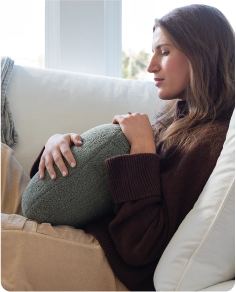
- Alex
Embracing Holistic Approaches for Mental Wellness
Holistic approaches for mental wellness can range from therapy to lifestyle changes. By exploring alternatives to medication, you can develop a personalized approach that works best for your unique needs.
Take a proactive step toward better mental wellness with the Original Weighted Pillow by Quiet Mind . Its compact size and portability make it ideal for managing stress and alleviating anxiety at home, work, or on the go.
